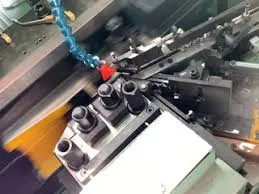
-
 Afrikaans
Afrikaans -
 Albanian
Albanian -
 Amharic
Amharic -
 Arabic
Arabic -
 Armenian
Armenian -
 Azerbaijani
Azerbaijani -
 Basque
Basque -
 Belarusian
Belarusian -
 Bengali
Bengali -
 Bosnian
Bosnian -
 Bulgarian
Bulgarian -
 Catalan
Catalan -
 Cebuano
Cebuano -
 Corsican
Corsican -
 Croatian
Croatian -
 Czech
Czech -
 Danish
Danish -
 Dutch
Dutch -
 English
English -
 Esperanto
Esperanto -
 Estonian
Estonian -
 Finnish
Finnish -
 French
French -
 Frisian
Frisian -
 Galician
Galician -
 Georgian
Georgian -
 German
German -
 Greek
Greek -
 Gujarati
Gujarati -
 Haitian Creole
Haitian Creole -
 hausa
hausa -
 hawaiian
hawaiian -
 Hebrew
Hebrew -
 Hindi
Hindi -
 Miao
Miao -
 Hungarian
Hungarian -
 Icelandic
Icelandic -
 igbo
igbo -
 Indonesian
Indonesian -
 irish
irish -
 Italian
Italian -
 Japanese
Japanese -
 Javanese
Javanese -
 Kannada
Kannada -
 kazakh
kazakh -
 Khmer
Khmer -
 Rwandese
Rwandese -
 Korean
Korean -
 Kurdish
Kurdish -
 Kyrgyz
Kyrgyz -
 Lao
Lao -
 Latin
Latin -
 Latvian
Latvian -
 Lithuanian
Lithuanian -
 Luxembourgish
Luxembourgish -
 Macedonian
Macedonian -
 Malgashi
Malgashi -
 Malay
Malay -
 Malayalam
Malayalam -
 Maltese
Maltese -
 Maori
Maori -
 Marathi
Marathi -
 Mongolian
Mongolian -
 Myanmar
Myanmar -
 Nepali
Nepali -
 Norwegian
Norwegian -
 Norwegian
Norwegian -
 Occitan
Occitan -
 Pashto
Pashto -
 Persian
Persian -
 Polish
Polish -
 Portuguese
Portuguese -
 Punjabi
Punjabi -
 Romanian
Romanian -
 Russian
Russian -
 Samoan
Samoan -
 Scottish Gaelic
Scottish Gaelic -
 Serbian
Serbian -
 Sesotho
Sesotho -
 Shona
Shona -
 Sindhi
Sindhi -
 Sinhala
Sinhala -
 Slovak
Slovak -
 Slovenian
Slovenian -
 Somali
Somali -
 Spanish
Spanish -
 Sundanese
Sundanese -
 Swahili
Swahili -
 Swedish
Swedish -
 Tagalog
Tagalog -
 Tajik
Tajik -
 Tamil
Tamil -
 Tatar
Tatar -
 Telugu
Telugu -
 Thai
Thai -
 Turkish
Turkish -
 Turkmen
Turkmen -
 Ukrainian
Ukrainian -
 Urdu
Urdu -
 Uighur
Uighur -
 Uzbek
Uzbek -
 Vietnamese
Vietnamese -
 Welsh
Welsh -
 Bantu
Bantu -
 Yiddish
Yiddish -
 Yoruba
Yoruba -
 Zulu
Zulu
Comprehensive Solutions for Maintenance and Repair of Thread Rolling Machinery and Equipment
Thread Rolling Equipment Service Ensuring Precision and Efficiency in Manufacturing
In the competitive landscape of modern manufacturing, the demand for high-quality, precise components has never been greater. One of the critical processes in achieving superior quality is thread rolling, a technique used to create advanced threaded parts that are essential in various industries, from automotive to aerospace. However, to maintain the integrity of this process, reliable thread rolling equipment service is paramount.
Thread rolling is a cold-forming process that produces threads on cylindrical parts without removing material. Instead, it uses cylindrical rollers to deform the workpiece, resulting in stronger threads compared to those made by cutting. This strength is achieved because the threads created during rolling have a uniform grain structure, enhancing the mechanical properties of the parts. As such, the reliability of thread rolling equipment directly impacts the overall production quality and efficiency.
Equipment used in thread rolling must operate under precise parameters to ensure the final product meets industry standards. Regular maintenance and service play a crucial role in achieving this precision. An effective service plan includes routine inspections, cleaning, lubrication, and adjustments to ensure that the machines are functioning optimally. Neglecting these aspects can lead to equipment malfunctions, which not only disrupt the manufacturing process but can also result in defective products that incur costly rework or scrap.
thread rolling equipment service

Moreover, the importance of investing in quality service becomes evident when one considers the potential for downtime. Machine breakdowns can halt production for extended periods, leading to missed deadlines and lost revenue. Therefore, many manufacturers are now opting for preventive maintenance programs that include scheduled service visits to assess the condition of their thread rolling equipment. This proactive approach minimizes the risk of unexpected failures, ensuring continuous operation and improving overall productivity.
In addition to routine maintenance, thread rolling equipment service may also involve retrofitting or upgrading older machines, making them compatible with modern manufacturing demands
. Technological advancements in automation and control systems can significantly enhance the efficiency and accuracy of thread rolling processes. By investing in upgrades and utilizing the latest technology, manufacturers can achieve higher production speeds, reduced waste, and improved product quality.Another vital aspect of thread rolling equipment service is operator training. Even the best machinery can underperform without proper handling. Training programs tailored to educate operators on the intricacies of thread rolling techniques, machine calibration, and troubleshooting can lead to significant improvements in production quality. Informed operators can quickly identify potential issues and rectify them before they escalate, contributing to a smoother manufacturing operation.
In conclusion, the significance of thread rolling equipment service in maintaining operational efficiency, product quality, and overall productivity cannot be overstated. As manufacturers continue to strive for excellence in a highly competitive market, investing in both preventive maintenance and operator training is essential. By ensuring their thread rolling equipment is running at peak performance, companies can enhance their production capabilities, reduce downtime, and ultimately achieve greater customer satisfaction. Embracing a strategic approach to service and maintenance not only safeguards the integrity of the manufacturing process but also positions businesses for long-term success in their respective industries.
